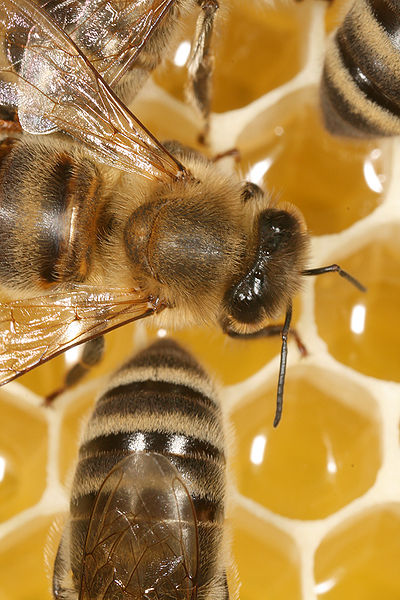Coffee and citrus plants lace their nectar with caffeine to boost bee pollination rates, new research has revealed.
Plants make alkaloid  chemicals like caffeine as a means of chemical defense, because at high concentration these molecules are toxic. At the same time, the brain-arousing effects of caffeine on the human nervous system are well known, but the finding that some plants are also using the agent at lower concentrations to get bees hooked on their nectar and increase pollination is certainly a surprise.
chemicals like caffeine as a means of chemical defense, because at high concentration these molecules are toxic. At the same time, the brain-arousing effects of caffeine on the human nervous system are well known, but the finding that some plants are also using the agent at lower concentrations to get bees hooked on their nectar and increase pollination is certainly a surprise.
Newcastle University research Geraldine Wright and her colleagues first tested the flowers of three coffee and four Citrus species.
Caffeine was present in the nectars of all of them, and in the case of one of the coffee strains (Coffea canephora), at the same concentration as a cup of instant!
To discover whether this caffeine could be affecting the behaviour of visiting pollinators, the team then tested the rate at which bees learned to associate a certain smell with getting a sugary (sucrose) reward, and how long they remembered this association afterwards.
In a series of trials, batches of bees were exposed to a smell and then offered a drink of a sugar solution that had been spiked with different levels of caffeine. The concentrations used were similar to those seen naturally in the plants. Plain sugar solution - without any caffeine - was also tested as a control.
The bees were then re-tested to see if they still showed a preference for the smell 24 and 72 hours later, and the effect was dramatic.
At 24 hours, compared with control bees that did not receive caffeine, three times as many of the insects headed straight for the smell. At 72 hours, twice as many bees still remembered the association between the smell and the sugar reward compared with the controls.
In human brains, caffeine boosts signalling between nerve cells in memory circuits by triggering a process called long-term potentiation (LTP). Tests on the bees' brains showed that their "Kenyon cells", which are the insect equivalent of the human hippocampal memory system, also formed stronger connections when dosed with caffeine.
This shows, argue the team in their paper published in Science, that some plants are using their caffeine to boost bee learning power, making the insects more likely to remember being fed by that plant's flowers, encouraging them to favour that species in future and improve the likelihood and efficiency of pollination.










Comments
Add a comment